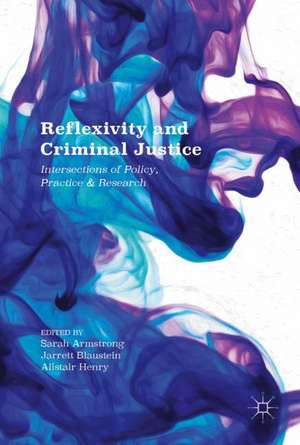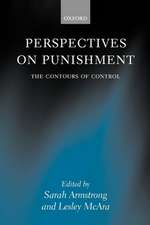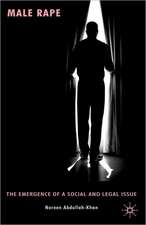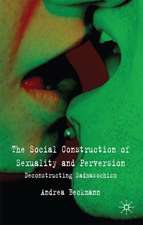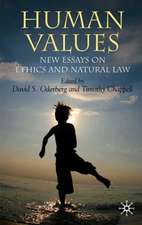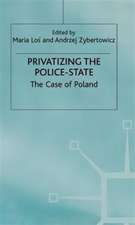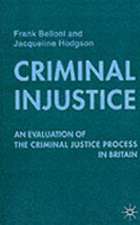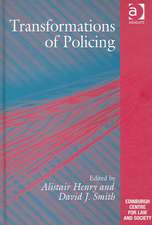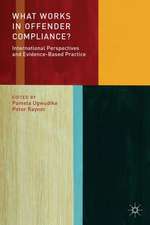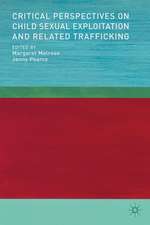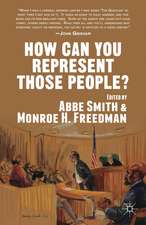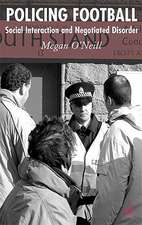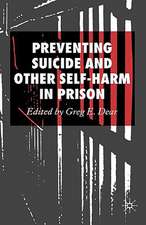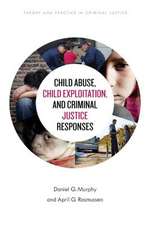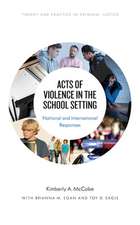Reflexivity and Criminal Justice: Intersections of Policy, Practice and Research
Editat de Sarah Armstrong, Jarrett Blaustein, Alistair Henryen Limba Engleză Hardback – 5 dec 2016
This collection presents a diverse set of case studies and theoretical reflections on how criminologists engage with practitioners and policy makers while undertaking research. The contributions to this volume highlight both the challenges and opportunities associated with doing criminological research in a reflexive and collaborative manner. They further examine the ethical and practical implications of the ‘impact’ agenda in the higher education sector with respect to the production and the dissemination of criminological knowledge.
Developed to serve as an internationally accessible reference volume for scholars, practitioners and postgraduate criminology students, this book responds to the awareness that criminology as a discipline increasingly encompasses not only the study of crime, but also the agencies, process and structures that regulate it. Key questions include: How can criminal justice policy be studied as part of the field of criminology? How do we account for our own roles as researchers who are a part of the policy process? What factors and dynamics influence, hinder and facilitate ‘good policy’?
Preț: 564.63 lei
Nou
Puncte Express: 847
Preț estimativ în valută:
108.05€ • 115.53$ • 90.08£
108.05€ • 115.53$ • 90.08£
Carte disponibilă
Livrare economică 27 martie-10 aprilie
Livrare express 13-19 martie pentru 288.24 lei
Preluare comenzi: 021 569.72.76
Specificații
ISBN-13: 9781137546418
ISBN-10: 1137546417
Pagini: 384
Ilustrații: XV, 388 p. 3 illus., 2 illus. in color.
Dimensiuni: 148 x 210 x 28 mm
Greutate: 6.22 kg
Ediția:1st ed. 2016
Editura: Palgrave Macmillan UK
Colecția Palgrave Macmillan
Locul publicării:London, United Kingdom
ISBN-10: 1137546417
Pagini: 384
Ilustrații: XV, 388 p. 3 illus., 2 illus. in color.
Dimensiuni: 148 x 210 x 28 mm
Greutate: 6.22 kg
Ediția:1st ed. 2016
Editura: Palgrave Macmillan UK
Colecția Palgrave Macmillan
Locul publicării:London, United Kingdom
Cuprins
1. Impact and the Reflexive Imperative in Criminal Justice Policy, Practice and Research; Sarah Armstrong, Jarrett Blaustein, Alistair Henry.- 2. Interpreting Influence; Harry Annison.- 3. When the Stars Align; Elaine Fishwick.- 4. Towards Hope, Solidarity and Re-Humanisation; Ruari-Santiago McBride.- 5. Policy as a Crime Scene; Sarah Armstrong, Anita Lam.- 6. Reflexivity in Statistics as Sociology of Quantification; Bilel Benbouzid.- 7. Criminological Knowledge and the Politics of Impact; Lesley McAra.- 8. Reflexive Academic-Practitioner Collaboration with the Police; Alistair Henry.- 9. The Shifting Legitimacy of Knowledge across Academic and Police/Practitioner Settings; Karen Lumsden.- 10. The Politics of Establishing Reflexivity as a Core Component of Good Policing; Dominic A. Wood, Emma Williams.- 11. Getting in, Getting out and Getting Back; Mary Bosworth, Blerina Kellezi.- 12. Cartel Biographies; Christopher Harding.- 13. Who Needs Evidence?; Graham Ellison.- 14. Insider? Outsider?; Kelly J. Stockdale.- 15. Situated Perspectives on the Global Fight against Torture; Andrew M. Jefferson.- 16. Ethical Criminologists Fly Economy; Jarrett Blaustein.-
Notă biografică
Sarah Armstrong is a Senior Research Fellow in Sociology at the University of Glasgow. She is widely published and her research focuses on prisons, policy and culture.
Jarrett Blaustein is a Lecturer in Criminology at Monash University. His research focuses on intersections between policing and international development.
Alistair Henry is Senior Lecturer in Criminology at the University of Edinburgh and Associate Director of the Scottish Institute for Police Research. His research focuses on policing and security, community safety, and the sociology of organizations.
Textul de pe ultima copertă
This collection presents a diverse set of case studies and theoretical reflections on how criminologists engage with practitioners and policy makers while undertaking research. The contributions to this volume highlight both the challenges and opportunities associated with doing criminological research in a reflexive and collaborative manner. They further examine the ethical and practical implications of the ‘impact’ agenda in the higher education sector with respect to the production and the dissemination of criminological knowledge.
Developed to serve as an internationally accessible reference volume for scholars, practitioners and postgraduate criminology students, this book responds to the awareness that criminology as a discipline increasingly encompasses not only the study of crime, but also the agencies, process and structures that regulate it. Key questions include: How can criminal justice policy be studied as part of the field of criminology? How do we account for our own roles as researchers who are a part of the policy process? What factors and dynamics influence, hinder and facilitate ‘good policy’?
Caracteristici
Draws on a diverse range of critical case studies Addresses key questions about criminological knowledge dissemination Examines the impact of criminology on Higher Education
